Mothers of false positives from Colombia are part of the book 'Para El Alma', a cookbook that combines the flavor and memory of a country.

Beatriz Méndez 's life has revolved around corn and the delicacies it can make. In her head, she keeps the recipes for recipes made with this grain. This is how Alejandra Bautista, author of Para El Alma , recounts, a book that blends the history of Colombia, the recipes and memories of the mothers of false positives , with stories that speak of their lives beyond the loss.
Even so, Beatriz's story ends by giving the reader the perfect recipe for the same chicken sancocho she made for her eldest son, Weimar, on his 18th birthday . In 2004, he and his cousin Edward were found dead south of Bogotá wearing camouflage uniforms. Neither of them was part of the Army or any illegal groups.
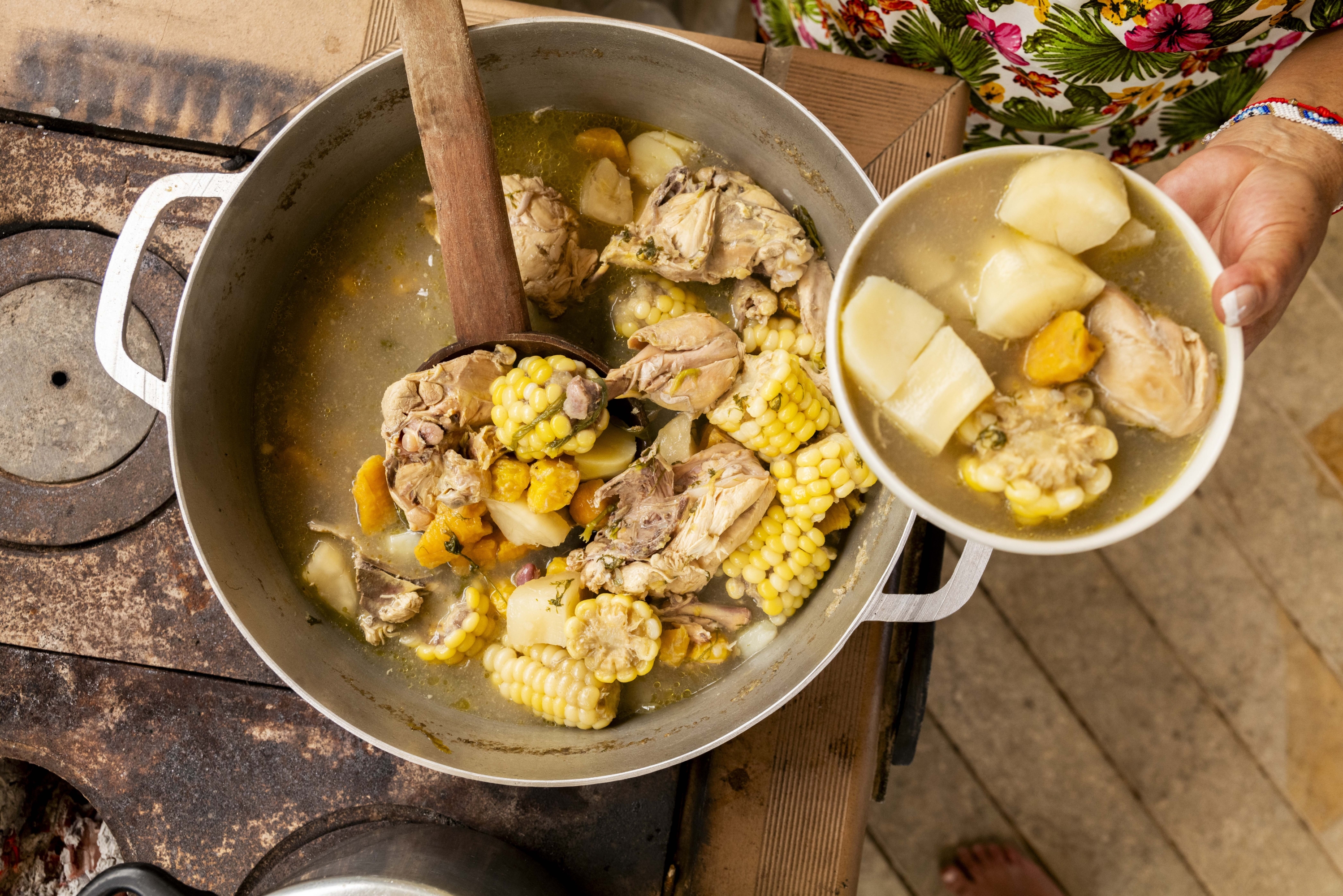
Chicken Sancocho, Beatriz Méndez Photo: Courtesy of Alejandro Osses
Sancocho was not Weimar's favorite dish, but Beatriz is still seen serving him the largest and meatiest piece of meat because he is the honoree.
Mafapo: Mothers who turned grief into resistance Para El Alma captures the experiences and stories of members of the Organization of Mothers of False Positives of Colombia (Mafapo) . Alejandra wrote it with the understanding that stories about this difficult chapter typically navigate between the disappearance, the discovery of bodies, and the fight for the truth.
This book features eleven women who have turned their pain into memory and resilience. They are:
- Blanca Monroy, mother of Julián Oviedo Monroy.
- Gloria Martínez, mother of Daniel Alexander Martínez.
- Ana Páez, mother of Eduardo Garzón Páez.
- Jacqueline Castillo, sister of Jaime Castillo Peña.
- Carmenza Gómez, mother of Víctor Fernando Gómez.
- Cecilia Arenas, sister of Mario Alexander Arenas.
- Beatriz Méndez Piñeros, mother of Weimar Armando Castro Méndez and aunt of Edward Benjamín Rincón Méndez.
- Idalí Garcerá, mother of Diego Tamayo Garcerá.
- Doris Tejada, mother of Oscar Alexander Morales Tejada.
- Blanca Nubia Díaz, mother of Irina del Carmen Villeros Díaz
- Rubiela Giraldo, mother of Diego Armando Marín.
“We rarely talk about who the people were who were disappeared and then murdered by the State. We rarely talk about the women, beyond being mothers, sisters, wives, or relatives of someone who was murdered ,” Alejandra reflects.
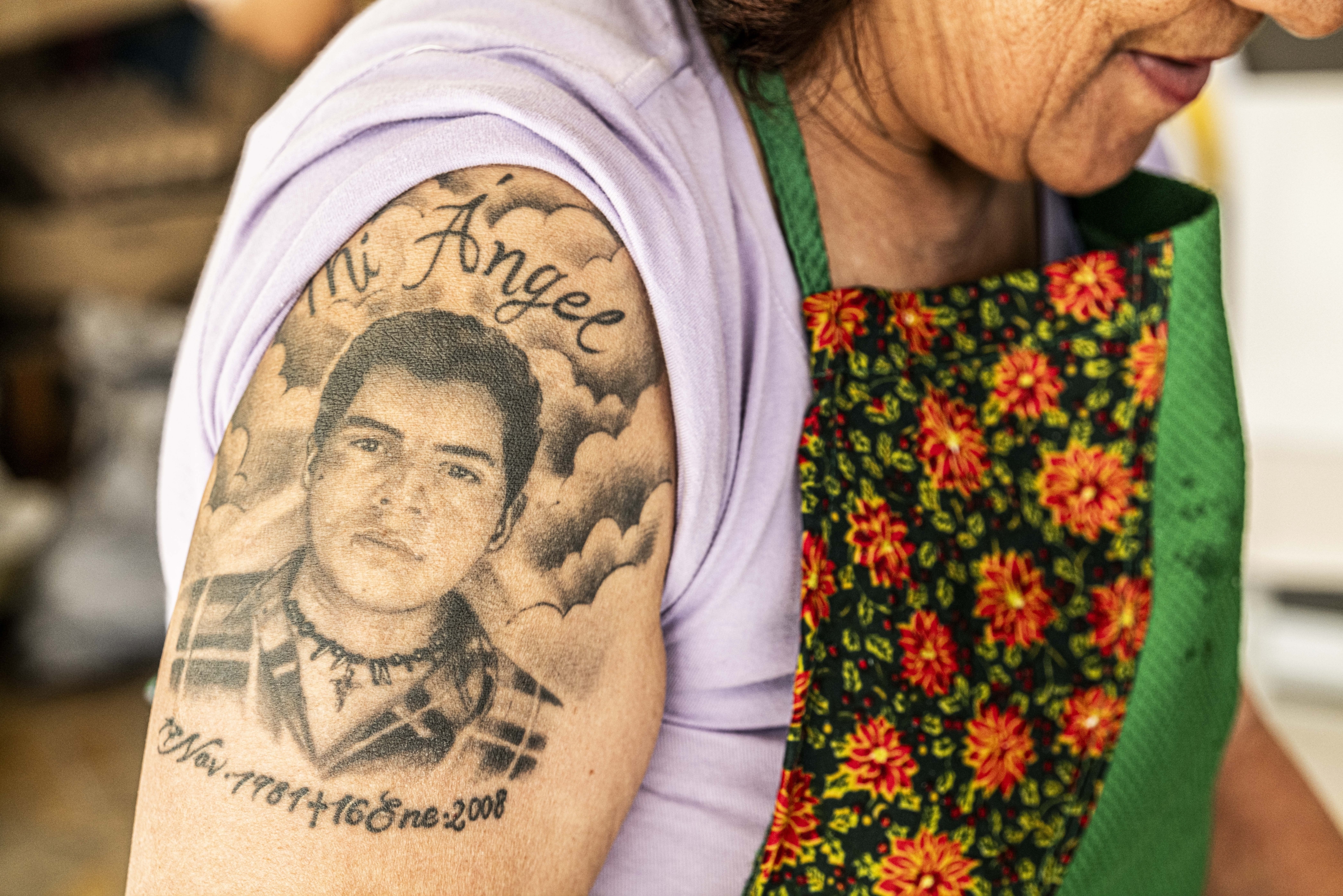
Doris Tejada, mother of Óscar Alexander Morales Tejada. Photo: Courtesy of Alejandro Osses
The author maintains that food is a very powerful connector, and she confirmed this while speaking with the mothers. “We weren't just sharing their and their families' memories through cooking and food, but we were also weaving almost a gastronomic map of Colombian culinary traditions,” she recounted.
It's rarely remembered that these women didn't just live through this part of Colombian history. They came from different regions of the country. Their childhood, adolescence, and adulthood reflect the traditions of both the countryside and the city. They are a fabric that shapes the memory of their territories and the various episodes of the armed conflict. One of them, Gloria, even retains memories of the times of bipartisan violence.
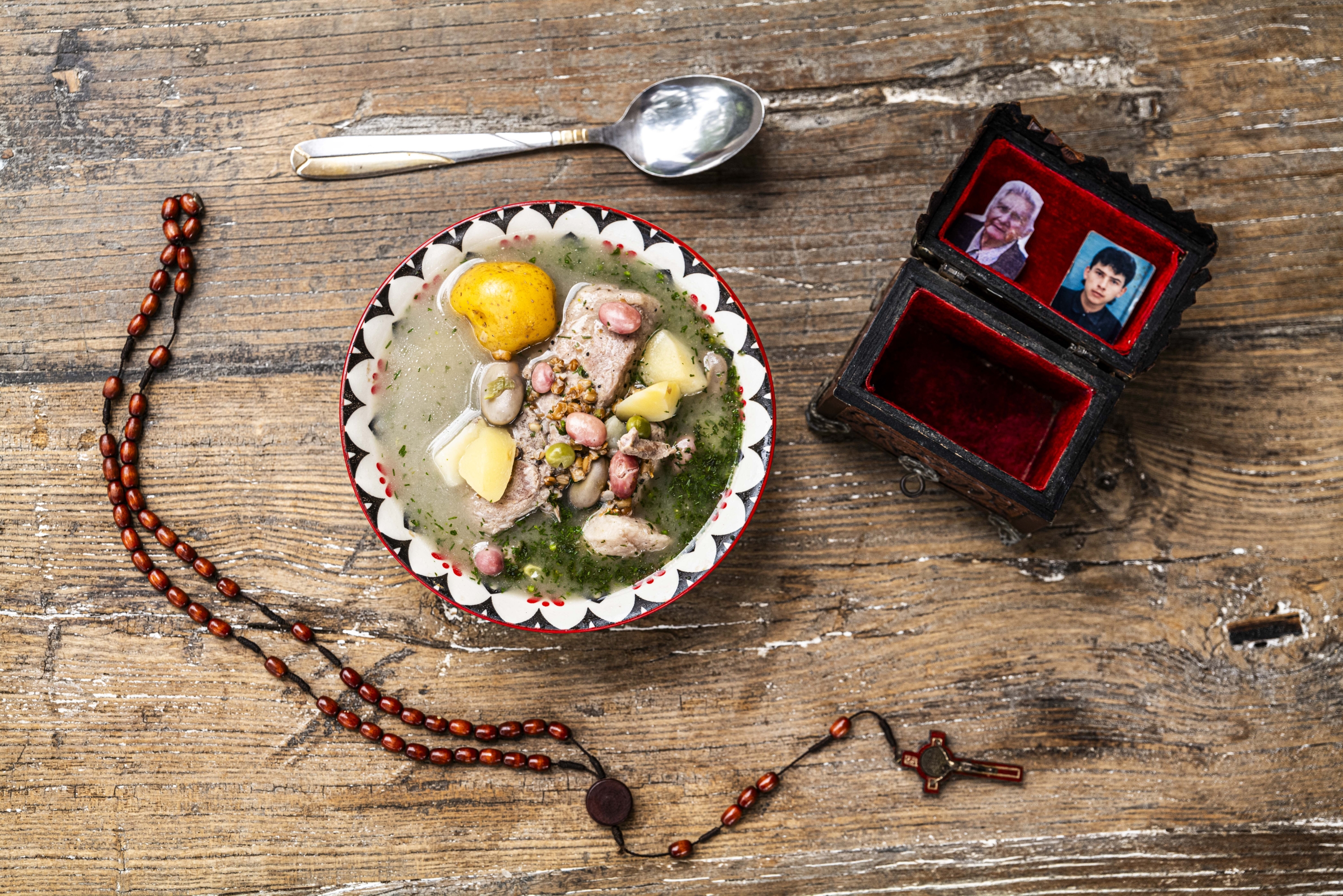
Wheat Cuchuco, by Cecilia Arenas Photo: Courtesy of Alejandro Osses
Beatriz, for example, comes from Ramiriquí, Boyacá. There she grew corn with her family and made delicious pastries. Her town was the first in Colombia to reject the use of genetically modified seeds. There, where tradition and nature prevailed, 'Betty' learned to make a thousand and one recipes with this typical Latin American grain. She knows how to grow and harvest it inside and out. She has never tired of its flavor, and her mouth waters just thinking about those dishes.
At age 11, she traveled to Bogotá and accompanied her mother to work in the Restrepo market, which has lost many of the things she remembers vividly. Beatriz's seasoning is the union of memories with smells and flavors. And Weimar enjoyed every single thing she cooked for him.
When Beatriz is asked what her son's favorite food was, she doesn't immediately remember. "He liked everything I cooked; he ate it with gusto," she says after a moment of thought. Then she thinks of Weimar playing with the arepa dough, rolling tiny balls out of it to throw at him as a prank. Then she remembers how the millefeuilles from the store were his reward for running errands (although he bought them himself with the spare change from the market).
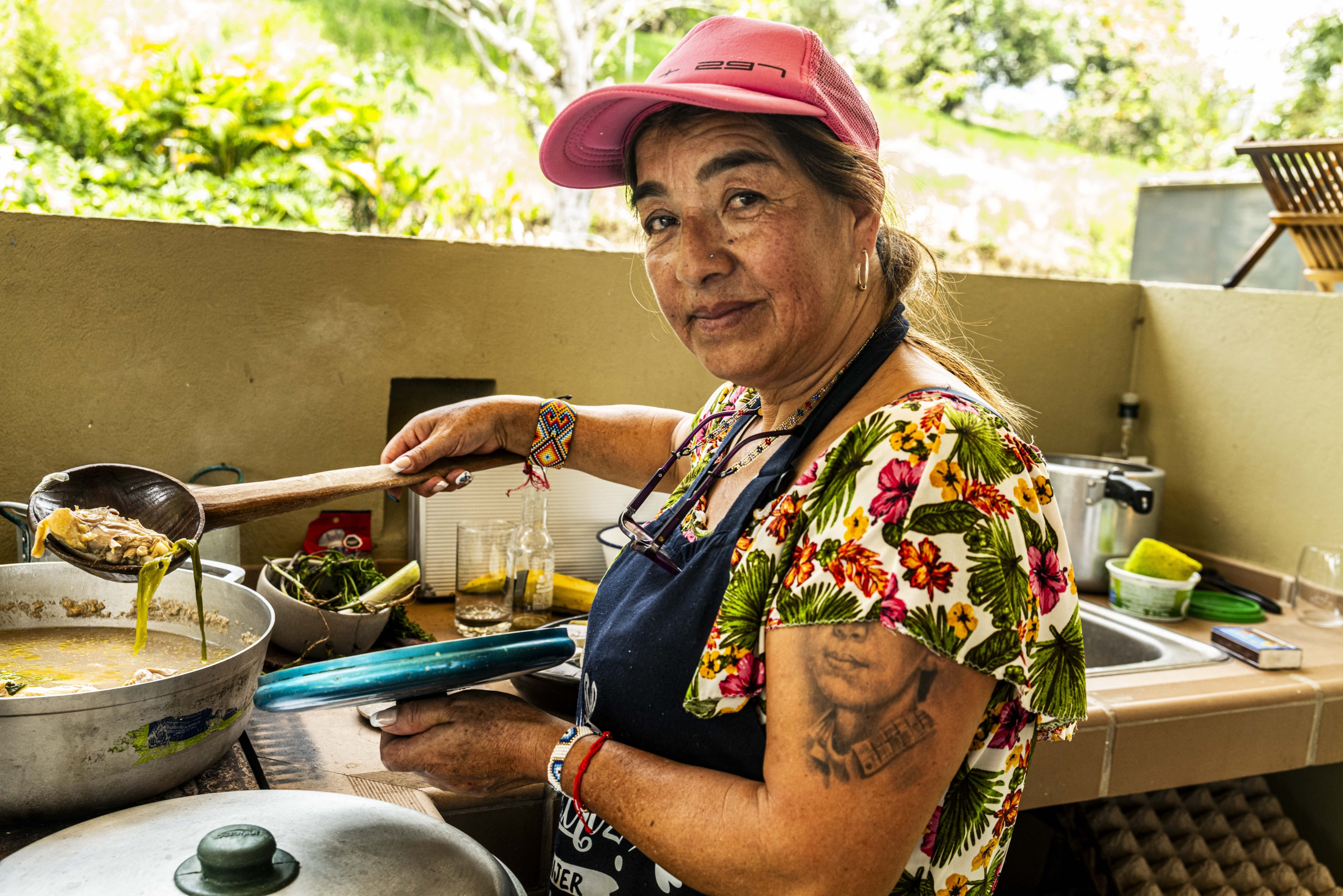
Beatriz Méndez cooking her chicken sancocho in a large pot. Photo: Courtesy of Alejandro Osses
Beatriz's memories then leave the kitchen. They shift to the small details her son had when he worked at a flower shop delivering arrangements. Every time he passed by the house where his family lived, Weimar managed to leave a flower in a bottle for his mother.
"Now I'm the one who brings him flowers," says Beatriz, who knows her son liked blue flowers. She's familiar with the process that turns them that color and tries to apply it.
Beatriz speaks without pause or hesitation when asked how her son disappeared in June 2004. That day, she wasn't in Bogotá, but in a small town in Boyacá, with her mother, celebrating Father's Day. Weimar decided to stay in the capital to accompany her uncle. One night, she went out with Edward and his cousin's girlfriend to eat ice cream. The girl returned home unharmed. The two boys were found dead, with signs of violence and gunshot wounds.
Her sister was supposed to break the news. She went to the village to get her, but brought her back with another excuse because she didn't have the heart to tell her the truth. Beatrice returned to the city thinking that Weimar and Edward had been in an accident and were recovering in a hospital. She was immensely surprised when she was told out of the blue that the funeral had already been arranged. She didn't understand what was happening.
When Beatriz saw her son's body and the bullet wounds, she thought for a moment they were cigarette burn marks . Weimar and Edward were listed as Army casualties in the guerrilla war.
For a while, Beatriz preferred not to dwell on what had happened. She didn't want to look for culprits. It was Edward's parents who investigated to such an extent that they began to be uncomfortable and received threats. "Don't play detective," they once told their brother-in-law in a letter. Faced with the situation, the entire family had to move to Jenesano, where they took refuge in a single room.
The day she saw that there were other mothers and relatives who, like her and her sister, had lost their children in the same way, she decided to return to Bogotá to look for them. She had to go through the neighborhoods where she had once dreamed of Weimar living with a family.
Knowing that there were people who had lost someone so dear to them gave her a sense of being understood, of having found her people. That group would later become Mafapo.
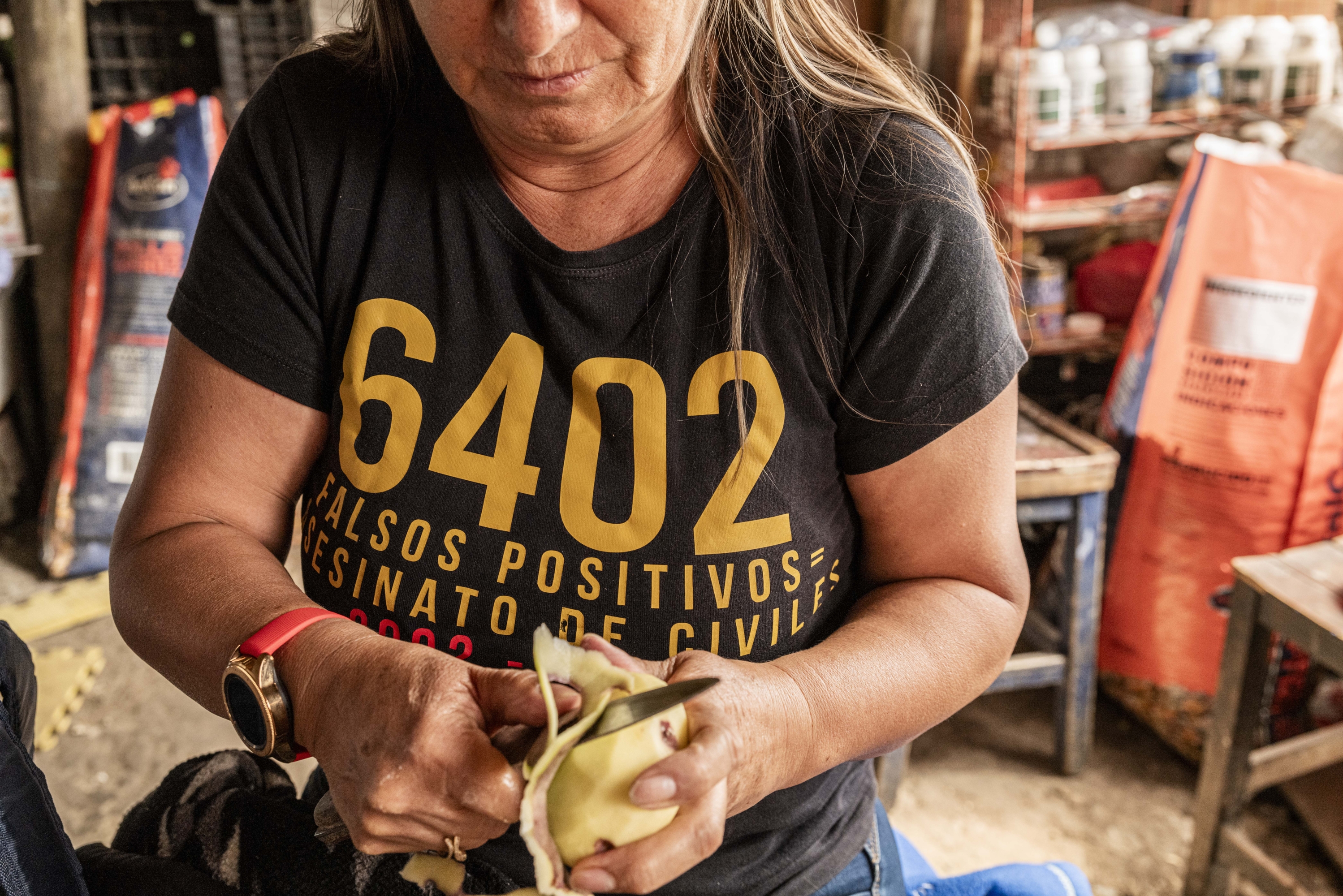
Jacqueline Castillo, sister of Jaime Castillo Peña. Photo: Courtesy of Alejandro Osses
The social uprising of 2021 was the spark that ignited Alejandra's inspiration when she saw frontline mothers taking to the streets with their children. Then the Mafapo (Mafapo) joined the marches. At that moment, she knew she had to talk to them, get to know them, and pay tribute to them.
“I was deeply moved by seeing this group of women come out every day to protest to feed their children. It was an example of collective care,” says Alejandra.
Seeing what these women were cooking during the social uprising, how they shared their dishes with protesters and even officers from the now-defunct Esmad (National Socialist Revolutionary Army), was what finally lit Alejandra's fire. This atmosphere of motherhood and camaraderie became her inspiration for Para El Alma (For the Soul).
To begin the project, she contacted Daniel Guerrero of the independent publishing house Hambre de Cultura. He offered advice and warned her it would be a long creative process.
Her first visit to the Memory Center, where the organization's office is located, marked the beginning of a relationship that has lasted four years. For one of the most important moments, she invited the eleven women to cook dishes that, in one way or another, reminded them of their children and siblings. They even went further: they themselves planted the food they would later prepare.
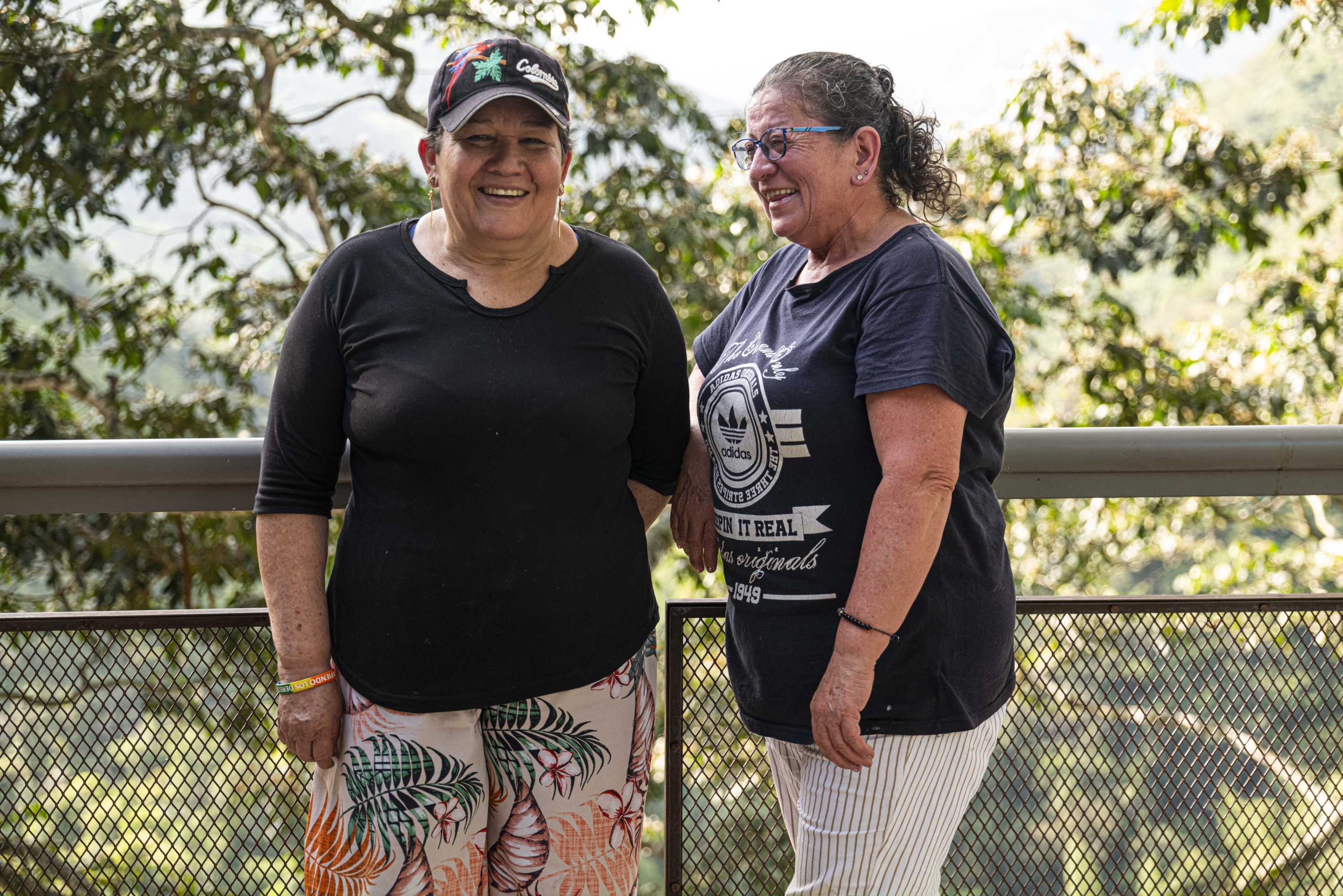
Carmenza and Gloria Martínez Photo: Courtesy of Alejandro Osses
The tours and gatherings between Alejandra and the mothers led to a heartfelt reunion in a borrowed home, where they arrived with plates, pots, and belongings belonging to their families to remember them.
Photographer Alejandro Osses immortalized the women communicating with each other through the universal language of food. They shared the stove and their recipes in confidence. A relationship grew between them, born of grief and the memory of a country ravaged by violence. A feeling that only those who have suffered the nameless can fully understand.
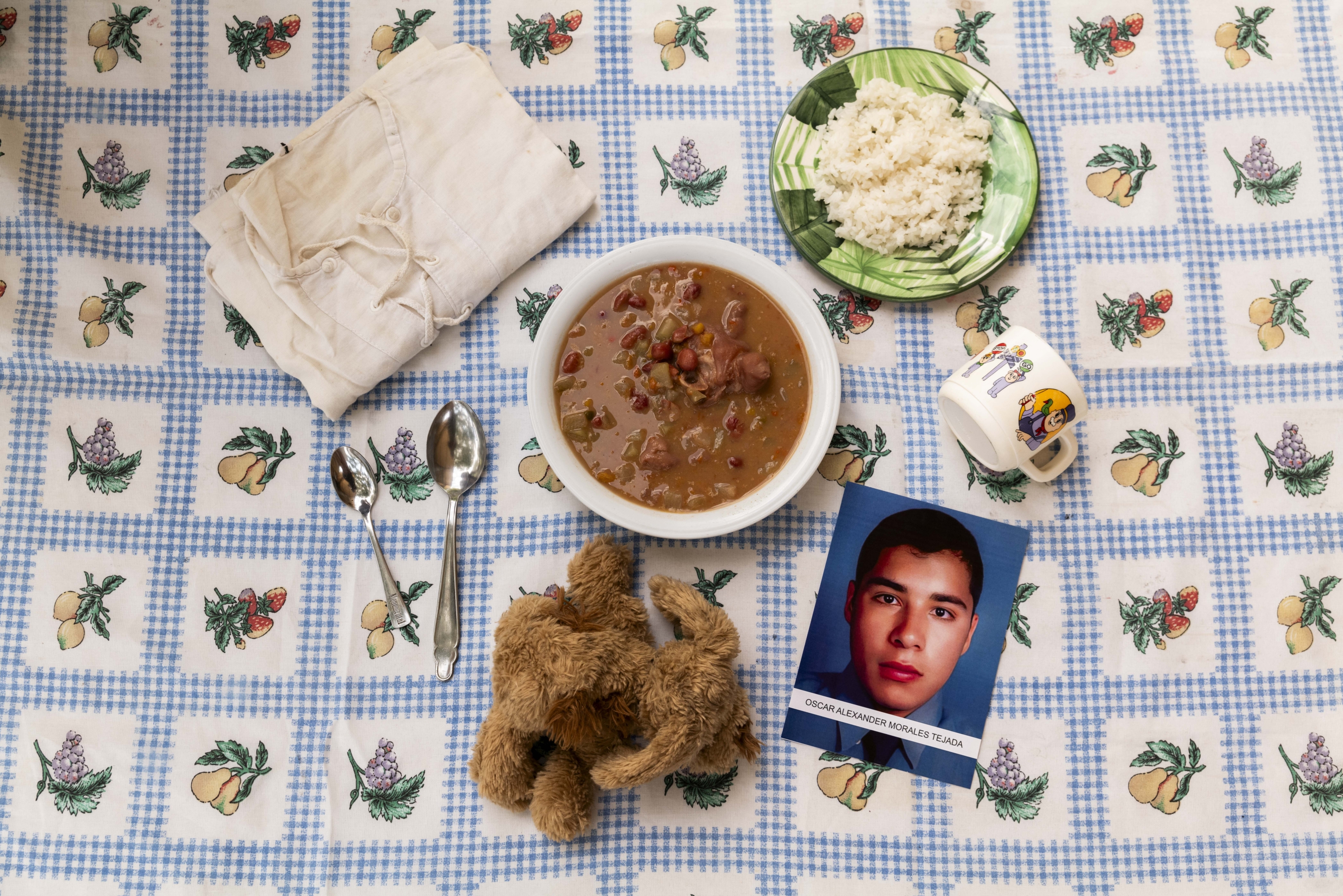
Drunken Beans, Doris Tejada's recipe. Photo: Courtesy of Alejandro Osses.
Alejandra not only managed to gain that trust, but also delved into the history and intimacy of each one, often reserved. All so that Colombia remembers that, in the midst of war, there is still a piece of beauty and tradition that deserves to be rescued from the chaos to pave the way for peace.
El Alma doesn't have the support of any institution or the backing of a fund. The publisher and the author are left to their own devices, and that's why they are seeking support from anyone willing to contribute so this book can be printed , as it is the most costly step for this project to be fully known.
María Paula Rodríguez Rozo
Journalist for the LATEST NEWS EDITORIAL
eltiempo

-kKBG--1024x512%40diario_abc.jpg&w=1280&q=100)


